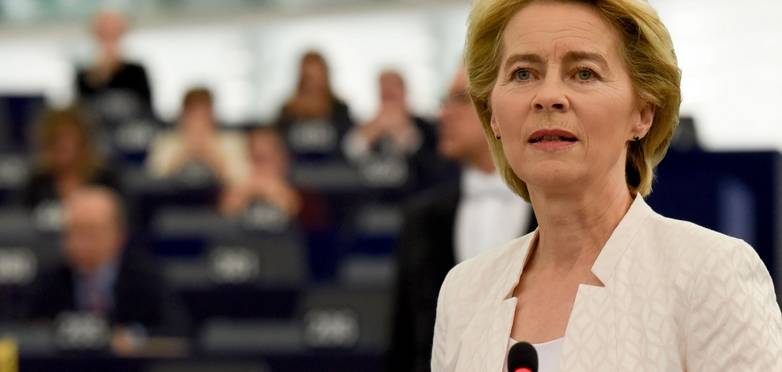
Europe plans more aggressive new laws to phase out fossil fuels
The proposals, expected Wednesday, are likely to be more ambitious and specific than other countries' efforts to tackle climate change and could include a border tax on imports deemed to be polluting. European officials are preparing to introduce ambitious legislation designed to wean one of the world's largest and most polluting economies from fossil fuels much faster than other nations have pledged to do. Proposals could include phasing out coal as a source of electricity as well as introducing tariffs on polluting imports - an idea that could end global trade disputes. The package of a dozen legislative proposals from the European Commission, expected Wednesday, aims to quickly reduce greenhouse gas emissions and achieve an ambitious climate target, already enshrined in law: the bloc of 27 nations said that it would reduce its greenhouse gas emissions by 55% by 2030, from 1990 levels. The legislation is expected to stand in stark contrast to the vague aspirations of various other countries to neutralize their emissions by the middle of the century. "It's not just a big promise," said Jennifer Tollmann, Berlin-based analyst for E3G, a research and advocacy group that works on climate policy.
The proposals, known as “Fit for 55” , are just proposals. It will take many months to negotiate between the 27 member countries and the European Parliament before it becomes law. And they will most certainly invite a close examination of Europe's dependence on the extraction and combustion of fossil fuels in its own territories, from oil and gas drilling in the North Sea to the extraction of the coal in countries like Germany and Poland. The most controversial element is what is called a border carbon adjustment tax. It would impose tariffs on greenhouse gas emissions associated with products imported from outside the European Union and, in effect, protect European companies from products made in countries with less stringent climate policies. . Some of the products he could target, according to some sources, include steel, cement, iron and fertilizers. This border carbon tax could not only shake up global trade and spark a dispute over protectionism within the World Trade Organization, but also create new diplomatic fault lines ahead of the international climate negotiations taking place in New York. Glasgow in November.
The Glasgow rally is an important moment for major emitting countries to show what they will do to tackle the greenhouse gas emissions that have put the world on a dangerous warming path. Scientists said the world as a whole needs to halve emissions by 2030, which would require the biggest polluters in history, namely the United States, China, India and the Europe, make the sharpest and fastest reductions. All eyes are on the targets set by the United States and China, which currently produce the largest share of greenhouse gases, and, more importantly, how they will get there. China and India have publicly criticized the idea of a border carbon tax. Japan is not enthusiastic. And the United States has said it is evaluating the idea of its own border carbon tax. It is still unclear exactly which products the tax would target. The United States, for example, is particularly concerned about the potential effect on steel produced in the United States, and it remains to be seen whether the proposed border tax would take into account the carbon emissions intensity of imported steel. The United States is in a difficult position when it comes to a possible European border tax.
The Biden administration is keen to restore transatlantic alliances, including on climate change. And yet, without any prospect of carbon pricing legislation in the United States, many American companies could be vulnerable. The Biden administration has suspended the prospect of a border carbon tax, though its prospects would likely be grim in a divided Congress. “Nothing is ruled out yet. All discussions are still possible, ” White House climate adviser Gina McCarthy said at a conference hosted by Bloomberg on Tuesday. “There are many ways to view a border carbon tax adjustment as an opportunity here. "Other aspects of the legislative package are likely to be controversial within the bloc of 27 countries. Efforts to phase out sales of new combustion vehicles, for example, risk meeting objections from some European carmakers. (Bloomberg reported this week that France is opposing a 2035 proposal to ban sales of new gasoline-powered cars.) Efforts to phase out coal from power generation are likely to be hampered by the opposition from countries with large coal mines, such as Poland and Hungary.
The timing of the draft European legislation is essential, designed to highlight Europe's position on promoting climate policies and putting pressure on other major emitters, including China and the United States. “This will be the first opportunity to state that we are not only committing to numbers but that we have a set of policies; very specific policies, ” said Laurence Tubiana, head of the European Climate Foundation and former chief climate negotiator for France in the UN climate negotiations, in an emailed statement.
Posted on 2021-07-14 16:19








Comments